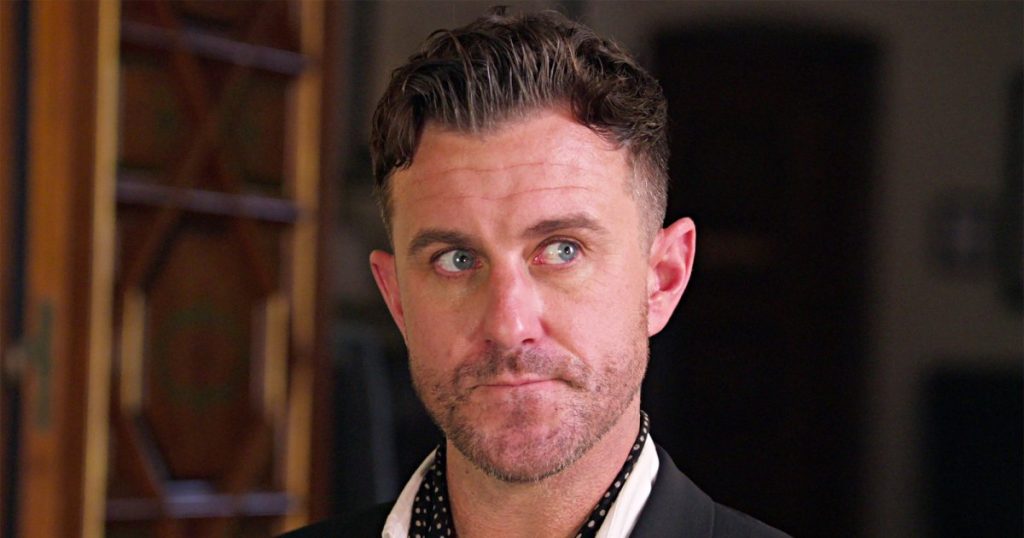Nick Tramontin, a participant in season 3 of Netflix’s The Ultimatum: Marry or Move On, reflects on his experience with regret, acknowledging that his behavior on the show wasn’t representative of his true self. He attributes his actions, which he describes as emotionally volatile and reactive, to a combination of factors, including sleep deprivation and excessive alcohol consumption, rather than water. He admits that he was grappling with personal struggles during filming, and the challenging environment of the show exacerbated these issues. His relationship with then-girlfriend Sandy Gallagher, which had been on and off for nine months prior to the show, was the catalyst for their participation. On The Ultimatum, couples facing an ultimatum – marry or move on – "try out" relationships with other cast members. Nick paired with Mariah Zernik, while Sandy was matched with J.R. Warren. Mariah’s early departure to reunite with her now-fiancé left Nick alone for the remainder of the three-week trial marriage period, further compounding his difficulties.
Nick’s reflection on his time on the show reveals a deeper struggle with substance abuse, something he admits pre-dated The Ultimatum. He describes the experience as highlighting his reliance on alcohol as a coping mechanism, a pattern he’d previously recognized but hadn’t fully addressed. The pressure of the show, combined with the pre-existing issue, led to what he calls “ebbs and flows” with his substance use, a cycle of apparent control followed by relapse. He acknowledges not having the necessary mental health support system during filming, contributing to his use of alcohol as an "escape." The lack of sleep and increased drinking amplified his emotional volatility and hindered his ability to manage his reactions. Looking back, Nick realizes that he wasn’t his authentic self, and he attributes this to his internal struggles and the challenging circumstances of the experiment.
The show’s format, which encourages social drinking, made it difficult for Nick to recognize and address his problematic relationship with alcohol. The constant presence of alcohol, normalized within the social context of the show, created an environment where self-reflection and behavioral change were challenging. Nick describes feeling numbed by the alcohol, further disconnecting him from his emotions and contributing to the behaviors he now regrets. The experience ultimately served as a wake-up call, prompting him to seek help for his substance abuse after filming wrapped and his relationship with Sandy ended.
Nick credits Sandy with consistently supporting his sobriety journey, despite their personal challenges and the eventual end of their relationship. He emphasizes her unwavering encouragement and assistance, even amidst the difficulties they faced both on and off screen. Sandy, in turn, acknowledges the difficulty of navigating Nick’s substance abuse while maintaining her commitment to his well-being. She recounts “dropping everything” to ensure his safety and offer support during his struggles. Both Nick and Sandy emphasize the amicable nature of their current relationship despite their breakup.
Following their separation, Nick embarked on a new relationship, sharing that this current partner aligns with him “far more on the same page” than he and Sandy ever were. This suggests that Nick has learned from his past experiences and is now seeking a more compatible and stable partnership. His candid reflections on his time on The Ultimatum highlight the complexities of personal struggles and the influence of challenging environments on behavior. His openness about his substance abuse issues and the subsequent steps he took to address them serve as a reminder of the importance of seeking help and support when needed.
Nick Tramontin’s story underscores the pressures inherent in reality television environments, particularly those that involve intense emotional dynamics and readily available alcohol. His struggles with substance abuse, magnified by the show’s format, highlight the need for robust mental health support for reality TV participants. The show served as a catalyst for Nick to confront his issues and seek help, demonstrating the potential for personal growth even amidst difficult circumstances. His willingness to share his experience openly may encourage others struggling with similar challenges to seek the help they need. The provision of the Substance Abuse and Mental Health Services Administration (SAMHSA) National Helpline number further reinforces the message that support is available for those battling substance abuse. It also contextualizes Nick’s story within a broader societal concern and offers a resource for viewers who might be personally affected.
The focus on Nick’s personal journey within the broader context of The Ultimatum allows for a deeper exploration of the complex interplay between personal struggles, relationship dynamics, and the influence of reality television. The inclusion of Sandy’s perspective provides further insight into the challenges faced by partners of individuals battling substance abuse. This multifaceted approach paints a more comprehensive picture of the situation and highlights the impact of these issues on all involved. Nick’s candid self-reflection, coupled with his commitment to addressing his challenges, offers a message of hope and resilience for those facing similar struggles. His story serves as a reminder of the importance of self-awareness, seeking help when needed, and the potential for growth and positive change, even in the face of adversity.

